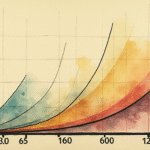Introduction to Violeta Chamorro
Violeta Barrios de Chamorro, who became Nicaragua’s first female president in 1990 and the Americas’ first elected female head of state, passed away on June 14, 2025, at the age of 95 in San José, Costa Rica. The news was confirmed by her family through a statement.
Background and Political Career
Chamorro, who suffered a cerebral embolism in 2018, had withdrawn from public life due to a brain tumor and subsequent health issues. In October 2023, she received continuous medical care in Costa Rica, where her three exiled children—Cristiana, Pedro Joaquín, and Carlos Fernando Chamorro Barrios—reside.
Born as Violeta Barrios, she married Pedro Joaquín Chamorro, a prominent journalist who was assassinated in 1978 by alleged hitmen of the Somoza regime. This tragic event shaped her political career and commitment to justice.
Legacy and Impact
Violeta Chamorro was a prominent advocate for regional development and peace strengthening in Nicaragua. Her political journey began in 1990 when she defeated the current Nicaraguan president, Daniel Ortega, in the elections. Ortega has been in power since 2007.
Key Achievements
- Promoted democracy and human rights in Nicaragua
- Advocated for economic reforms and regional integration
- Worked towards national reconciliation following the Contra War
International Recognition
Chamorro’s presidency marked a significant milestone for women in politics, not only in Nicaragua but across the Americas. Her leadership inspired future generations of women to pursue political careers and fight for gender equality.
Final Days and Burial
Chamorro’s family announced her peaceful passing surrounded by the love and care of her children and other loved ones. She will be temporarily laid to rest in San José, Costa Rica, “until Nicaragua regains its status as a Republic and her patriotic legacy can be honored in a free and democratic country,” according to her children.
Key Questions and Answers
- Who was Violeta Chamorro? Violeta Barrios de Chamorro was a Nicaraguan journalist, politician, and the country’s first female president, elected in 1990.
- Why is she significant? Chamorro played a crucial role in promoting democracy, human rights, and regional development in Nicaragua. She also became an inspiration for women in politics across the Americas.
- What were her key achievements as president? During her presidency, Chamorro focused on economic reforms, regional integration, and national reconciliation following the Contra War. She also championed human rights and democracy in Nicaragua.
- Where will she be buried? Chamorro will be temporarily laid to rest in San José, Costa Rica, with the hope that her legacy can be honored in a free and democratic Nicaragua in the future.






